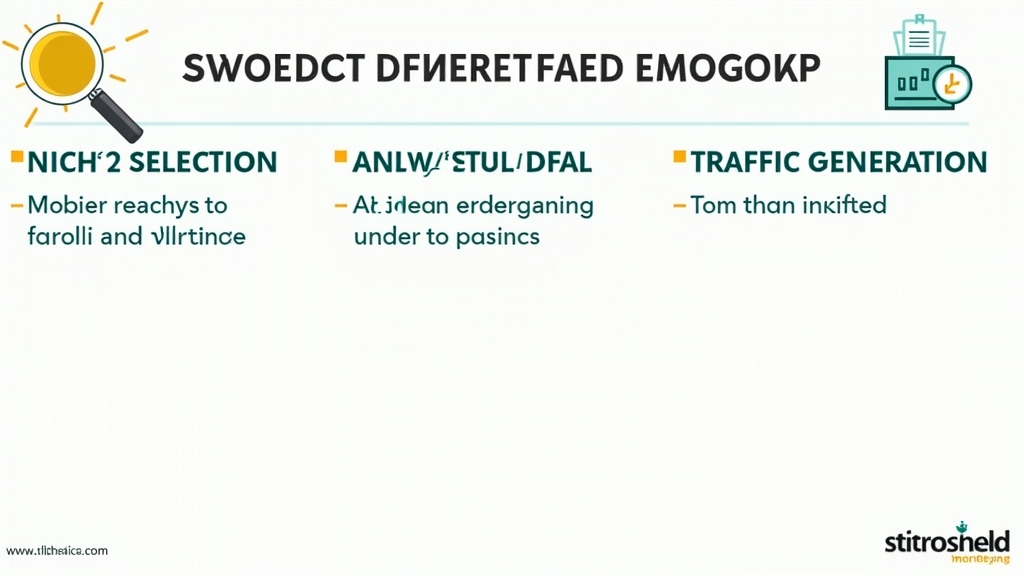Affiliate Marketing for Beginners: A Comprehensive Guide to Getting Started
Introduction to Affiliate Marketing
Affiliate marketing is a popular way to earn money online by promoting products or services from other companies. As an affiliate, you earn a commission for every sale made through your unique referral link. This guide will help you understand the basics of affiliate marketing and how to get started on your journey. Whether you’re looking to make some extra cash or build a full-time income, this comprehensive guide will provide you with the essential knowledge and tools needed for success.
What is Affiliate Marketing?
Affiliate marketing involves partnering with businesses to promote their products or services. You share these offerings through various channels, such as websites, blogs, or social media. When someone clicks on your referral link and makes a purchase, you receive a commission. This model benefits both parties: businesses gain exposure and sales while affiliates earn money without creating their own products.
How Does Affiliate Marketing Work?
The process of affiliate marketing begins when you sign up for an affiliate program. After joining, you’ll receive unique links that track your referrals. You can then promote these links through content like blog posts or social media updates. When customers click on your link and complete a purchase, the company tracks this activity using cookies and pays you based on the agreed-upon commission structure.
Choosing the Right Niche
Identifying Profitable Niches
Selecting the right niche is crucial for success in affiliate marketing. A profitable niche should have enough demand but not be overly saturated with competition. Research trending topics using tools like Google Trends or keyword planners to find niches that interest you and have potential profitability.
Understanding Your Audience
Once you’ve identified potential niches, it’s essential to understand your target audience. Consider their needs, preferences, and pain points related to your chosen niche. Engaging with communities on platforms like forums or social media can provide valuable insights into what content resonates with them.
Finding Affiliate Programs
Types of Affiliate Programs
- Pay-per-sale (PPS): You earn a commission when someone makes a purchase.
- Pay-per-click (PPC): You get paid based on clicks generated from your referral link.
- Pay-per-lead (PPL): You receive payment when leads are generated through sign-ups or inquiries.
Choosing the right type depends on your strategy and audience engagement level.
How to Evaluate Affiliate Programs
When evaluating affiliate programs, consider factors such as commission rates, payment methods, cookie duration (how long after clicking they can still buy), and support offered by the program’s management team. Reading reviews from other affiliates can also help determine if a program is reputable.
Setting Up Your Platform
Creating a Website or Blog
A website or blog serves as your primary platform for promoting affiliate products effectively. Choose a domain name that reflects your niche and set up hosting services that meet your needs—many affordable options are available today! Use user-friendly platforms like WordPress to create engaging content easily.
Utilizing Social Media for Promotion
Social media platforms are powerful tools for driving traffic to your offers. Create profiles relevant to your niche where you can share valuable content alongside affiliate links organically—platforms like Instagram, Facebook, Pinterest, and Twitter work well depending on where your audience hangs out most often.
Content Creation Strategies
Types of Content That Drive Traffic
Creating high-quality content is key in attracting visitors who may convert into customers later down the line! Focus on producing informative articles about product reviews/tutorials/guides that align closely with what people search online within specific niches—this helps establish authority while providing value simultaneously!
SEO Best Practices for Affiliate Marketing
Search engine optimization (SEO) plays an important role in driving organic traffic towards any site/blog focused around affiliate marketing efforts! Implementing keywords strategically throughout written pieces ensures better visibility across search engines; optimizing meta descriptions/titles/images further enhances discoverability too!
Driving Traffic to Your Offers
Organic vs Paid Traffic Strategies
Understanding different traffic sources allows marketers flexibility when deciding how best they want reach audiences effectively! Organic strategies include blogging/social sharing whereas paid methods involve ads targeting specific demographics/interests ensuring maximum exposure quickly!
Using Email Marketing Effectively
Email marketing remains one of most effective ways nurture relationships between brands & consumers alike! Building subscriber lists enables direct communication regarding new promotions/offers leading increased conversions over time—consider offering freebies/discounts incentivize sign-ups initially!
Tracking and Analyzing Performance
Key Metrics to Monitor in Affiliate Marketing
Monitoring performance metrics helps gauge effectiveness campaigns run successfully over time; focus primarily upon conversion rates/click-through rates/revenue generated per visitor—all indicators success levels achieved thus far!
Tools for Tracking Performance
Utilizing tracking tools simplifies monitoring processes significantly; popular options include Google Analytics/Affiliate dashboard features provided by respective programs themselves enabling detailed insights into user behavior patterns observed regularly!
Common Mistakes to Avoid as a Beginner
Misunderstanding the Market
Many beginners fail due diligence researching markets thoroughly before diving headfirst into promotion activities resulting wasted resources/time spent chasing trends instead focusing sustainable growth opportunities instead!
Neglecting Compliance and Regulations
Staying compliant with regulations surrounding advertising practices critical avoid penalties/legal issues down road; familiarize yourself FTC guidelines ensure transparency honesty throughout all communications made publically regarding partnerships established accordingly!
Conclusion: Taking the Next Steps in Your Affiliate Marketing Journey
Now that you’ve learned about affiliate marketing fundamentals—from choosing niches/programs/platforms/content creation strategies—you’re ready take action! Start small but stay consistent while continuously learning along way until reaching desired goals achieved ultimately fulfilling aspirations envisioned previously during planning stages ahead!
📢 Explore More: Continue Your Journey!
If this article helped you understand how to start in affiliate marketing effectively check out Essential Tips for Successful Blogging! It covers vital strategies helping improve engagement while maximizing revenue potential within digital spaces efficiently!














![NEEWER 55W 18"/45cm Ring Light Kit [New Version], 5600K Dimmable ...](https://m.media-amazon.com/images/I/414QLqvZWLL._AC_.jpg)








